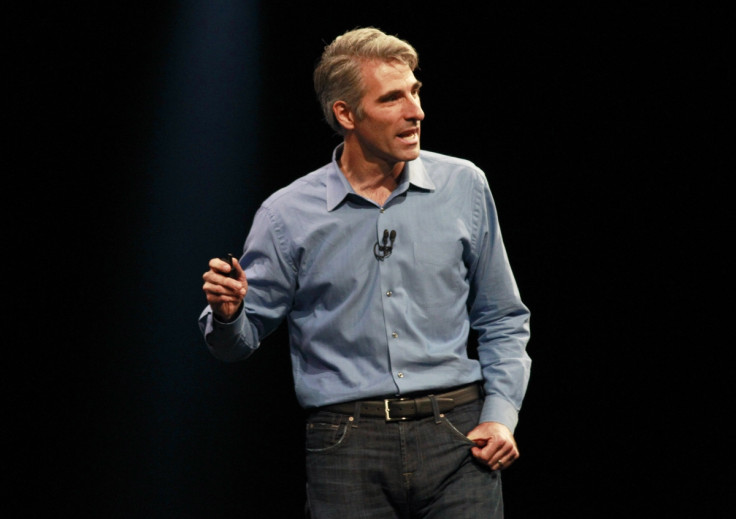Apple vs FBI: Creating backdoor into iPhone could put all at risk, warns company VP

As the legal battle between Apple and the US federal government heats up, Apple's vice president of software Craig Federighi warns that creating a "backdoor" into the iPhone could "wreak havoc on the privacy and personal safety of us all". In an op-ed in the Washington Post on March 6, Federighi focuses on the threat of faceless hackers and criminals, hitting back at Manhattan District Attorney Cyrus Vance's proposal that the company roll back to iOS 7.
Federighi writes that although the software was secure at the time, its safeguards have since been breached by hackers as criminals have become more sophisticated in their attacks.
"That's why it's so disappointing that the FBI, Justice Department and others in law enforcement are pressing us to turn back the clock to a less-secure time and less-secure technologies," Federighi wrtes.
"They have suggested that the safeguards of iOS 7 were good enough and that we should simply go back to the security standards of 2013. But the security of iOS 7, while cutting-edge at the time, has since been breached by hackers. What's worse, some of their methods have been productized and are now available for sale to attackers who are less skilled but often more malicious."
Apple and the FBI are locked in an escalating tussle over device encryption that has captivated the tech industry and sparked a fierce debate about the threat to customer security and privacy versus the needs of law enforcement. The US government is trying to use a court order to force Apple to help crack an iPhone used by one of the San Bernardino shooters in 2015.
Apple's refusal to comply so far has garnered the support of several tech giants including Microsoft, Google, Twitter and McAfee and, more recently, the UN High Commissioner for Human Rights Zeid Ra'ad Al Husein, who argues that the case could unlock a "Pandora's box" and have negative ramifications for human rights of people across the globe.
Federighi also raises the issue of cybersecurity and subsequent vulnerability to terrorism – an argument that has been used by the FBI in recent weeks.
"In just the past 18 months, hackers have repeatedly breached the defences of retail chains, banks and even the federal government, making off with the credit card information, Social Security numbers and fingerprint records of millions of people," writes Federighi. "Our nation's vital infrastructure – such as power grids and transportation hubs – becomes more vulnerable when individual devices get hacked. Criminals and terrorists who want to infiltrate systems and disrupt sensitive networks may start their attacks through access to just one person's smartphone."
Federighi says that as Apple's software team tries to stay a step ahead of criminal attackers, "yesterday's best defences cannot fend off the attacks of today or tomorrow".
"Software innovations of the future will depend on the foundation of strong device security. We cannot afford to fall behind those who would exploit technology in order to cause chaos. To slow our pace, or reverse our progress, puts everyone at risk," said Federighi.
"Once created, this software — which law enforcement has conceded it wants to apply to many iPhones — would become a weakness that hackers and criminals could use to wreak havoc on the privacy and personal safety of us all."
© Copyright IBTimes 2025. All rights reserved.




















